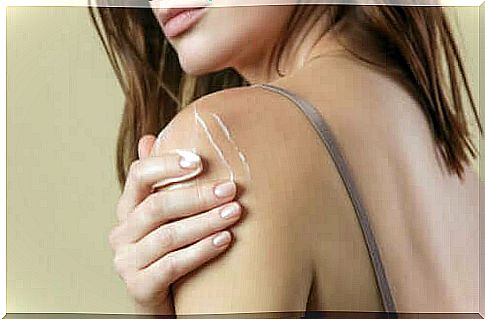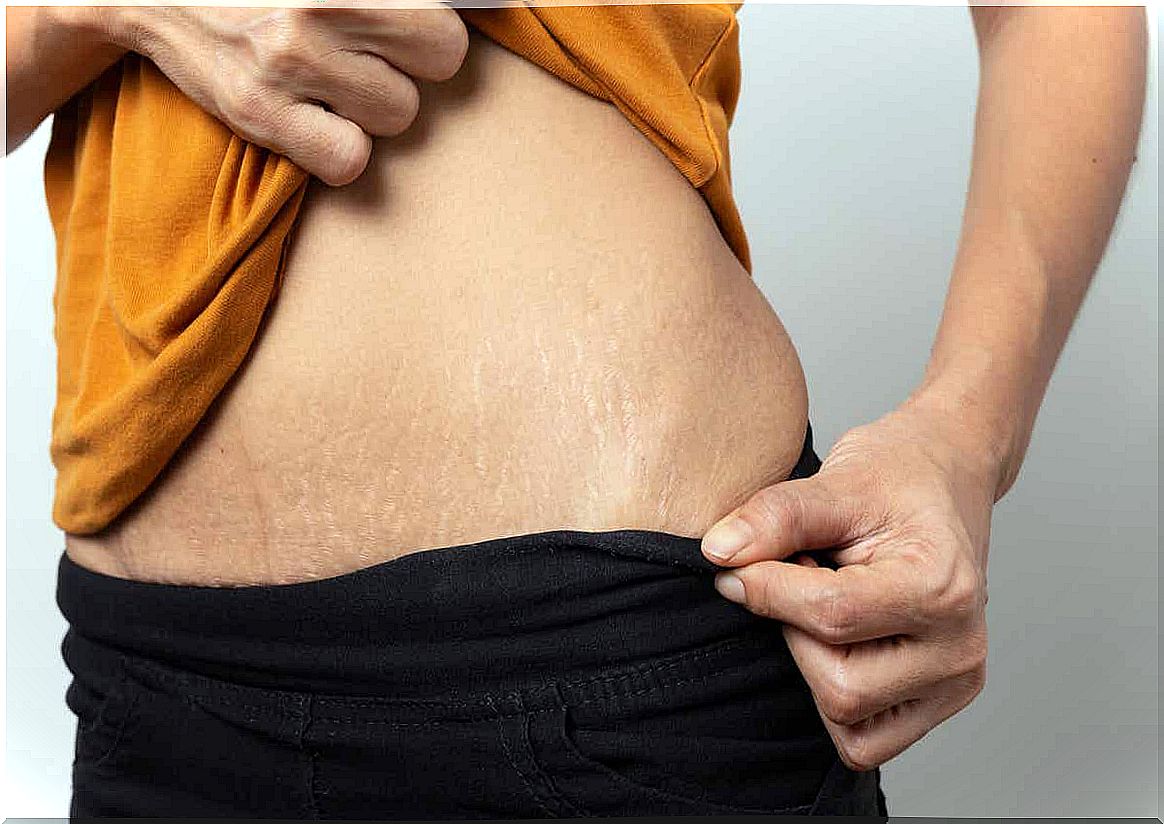10 Keys To Take Care Of Your Skin After Childbirth

Taking care of your skin after childbirth is one of the most common concerns of new mothers. While several aesthetic treatments or care routines exist, not all of them work best in this situation, if at all. The skin can look rough, blotchy and dry, and even show stretch marks, which is normal during pregnancy. Below we tell you how you can take care of it.
10 keys to caring for your skin after childbirth
The hormonal changes that occur during pregnancy can actually change your skin. Therefore, taking care of your skin after childbirth is a good option to consider.
1. Do not expose yourself to ultraviolet rays
During pregnancy, the skin becomes more sensitive to ultraviolet rays. You should therefore use sunscreen every day.
After childbirth, your face may show hyperpigmented spots on your cheeks, forehead, the bridge of your nose, or on your upper lip. Using sunscreen will therefore help prevent these spots from forming, or help them fade if they are already there.
2. Use moisturizing cream to care for your skin after childbirth
Moisture is the fundamental key to healthy and smooth skin. It is therefore important to constantly moisturize your skin during pregnancy to prevent the development of stretch marks.

Emollients with vitamin A, vitamin E, allantoin or hyaluronic acid are some of the ingredients that help to take care of your skin during and after pregnancy.
3. Choose neutral soaps
The skin has a pH between 4.5 and 5.5, which means that your skin is slightly acidic. However, this protective acid mantle of the skin must be kept undamaged and within the same values in order to fulfill the following functions:
- Neutralization of alkaline aggressive substances such as irritating detergents,
- Stop the spread of bacteria,
- Preserve and restore the acidic environment in which the natural flora of the skin can develop
To maintain this pH under normal conditions and to be efficient, it is best to use neutral soaps.
4. Healthy Eating
Nutrition also plays a very important role in the health of your skin. In fact, vitamins, carotenoids, tocopherols, flavonoids and a variety of plant extracts possess powerful antioxidant properties.
Consuming fruits and vegetables can be the healthiest and safest way to maintain a balanced diet and maintain healthy and youthful skin.
However, meat and dairy can also help. That is why you should follow a balanced and varied diet.
5. Proper Hydration
Proper hydration of the body is not only beneficial and essential for the proper functioning of the organs and the body itself, but also for the skin to fulfill its protective function.
We therefore recommend drinking 2 liters of water throughout the day. However, it does not necessarily have to be mineral water. It can also be tea or infusions.
6. Avoid coffee, alcohol and tobacco
Besides harmful to the body, coffee, alcohol and tobacco are also harmful to the skin. They also speed up the aging process.
Tobacco makes the skin appear grayer or more yellow and reduces the amount of vitamin A and vitamin C on the skin’s surface. Alcohol causes dehydration and gives dehydrated skin more chance of wrinkles. It also lowers levels of vitamin A in the skin.
7. Take enough rest to take care of your skin after childbirth
Sleeping between 6 and 8 hours a day contributes to various aspects of the body. It not only prevents the appearance of dark circles under your eyes, but also improves the appearance of the skin.
Collagen and elastin are produced during rest, stimulated by growth hormones during sleep. This results in a more radiant skin. During the night, cell regeneration mechanisms are activated to subsequently rid the skin of dead cells and impurities on the skin’s surface.
8. Biweekly Exfoliation
The skin’s surface is constantly renewing. In addition to the hyperpigmentation spots that usually appear during pregnancy, the intention is to cooperate with this natural process through exfoliation.

Diamond tip microdermabrasion or microgranulated cream peeling are excellent options for doing this. In addition, it goes without saying that while performing these procedures, you should always take care of photoprotection.
9. Face Masks
Face masks also have multiple functions that are beneficial to the skin. In addition to improving skin health, they may also have the following effects:
- Recovering
- Hydrating
- Exfoliating
- cleansing
10. Complementary Treatments
In addition to every skin care routine, there are also cosmetic procedures that pregnant women should not undergo, but which they can choose after giving birth.
- Lymphatic drainage
- Mesotherapy (talk to your doctor about the drugs being injected)
- Radio Frequency
Do you need to take care of your skin after childbirth?
The goal is to follow a skin care routine for your face and body during pregnancy. That way you don’t need too much extra care after the birth. Among other things, staying hydrated, wearing sunscreen and good nutrition are basic recommendations during pregnancy.









